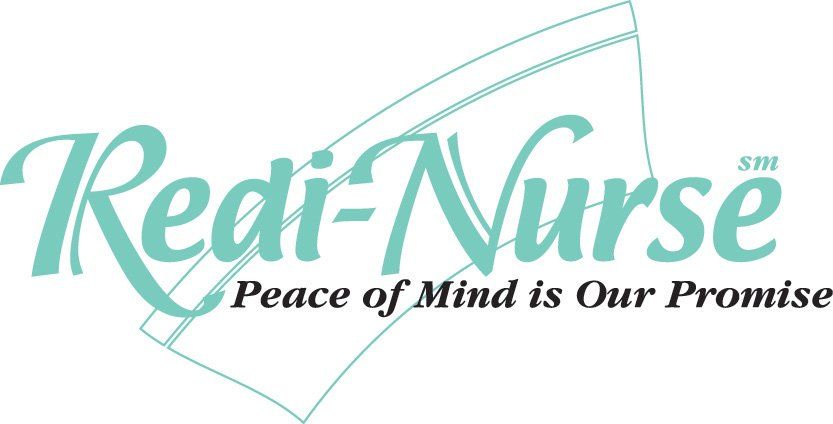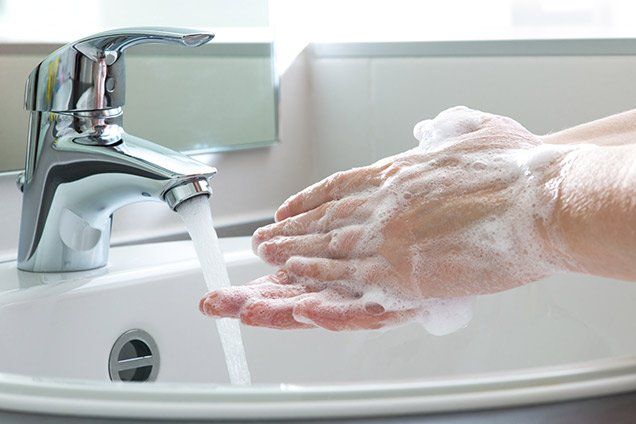Caregiving Tips for Infection Control in Your Home
Admin • May 17, 2018
Caring for an elderly parent at home has its challenges. Medical problems that need nursing care add to the difficulty of home care. The risk of infection is higher if your parent has a catheter or a wound. Plus, problems like poor nutrition and dehydration make it easier for infections to take hold.
Nurses and other home health workers train in infection control procedures, and there are things you can do too. Here are some suggestions for infection control in your home.
Wash Your Hands Often
Washing your hands is the most important step you can take as a caregiver for infection control. Wash your hands under running water using liquid soap, and if that's not possible, rub your hands with sanitizer. Keep in mind you pick up germs every time you leave the house.
The shopping cart at the store, a bathroom faucet, and even a restaurant menu could harbor germs from a sick person who touched it before you. Wash your hands when you return home and before you prepare meals for your parent.
If your parent has an infection, wash your hands after changing the dressing or when you contact their bodily fluids. By washing your hands often during the day, you'll prevent germ transfer that might make your parent sick.
Protect Your Parent Against Colds and the Flu
Wear a mask near your parent when you have a cold or other respiratory infection so you don't cough or sneeze on them. Restrict visitors during flu outbreaks so they don't pass the flu on to your parent or bring germs in the house.
Young children often pass germs around at school, so keep them away when they have a cough or fever. Have your parent's flu shot given on time, if it's recommended by the doctor.
Maintain Your Parent's Skin
Home health aides might assist with your parent's daily hygiene, but you may still need to do partial care. Keep your parent's skin dry and clean. Apply moisturizer to prevent dryness and itching that might lead to scratching and infections.
If your parent is immobile, change their position frequently throughout the day. Staying in the same position leads to pressure sores on the skin and the risk of infections. Pressure sores can become serious, so you want to prevent them and have a nurse check them if they develop.
Good nutrition and proper hydration are also important for healthy skin and sore prevention. The visiting nurse helps monitor your parent's nutrition and may recommend foods and products that keep your parent healthy and hydrated.
Learn How to Treat Infections
Preventing infections is part of the daily care you provide your parent, but sometimes an infection will still develop. Your parent might even come home from the hospital with a wound infection. The home nurse will teach you how to care for your parent's infection so it heals and so it doesn't spread.
The skills you learn depend on your parent's condition and could include things like catheter care when your parent has a urinary infection or wound care to help a sore heal. You may learn to use special supplies such as gloves, masks, ointments, sterile dressings, and disposable cloths and towels.
Sterile supplies must be handled properly to prevent contaminating them with your hands and causing an infection. Fortunately, when your parent has home care, a nurse will explain everything you need to know and, in some cases, much of the infection care may be done for you.
Preventing an infection is an important goal for you as your parent's caregiver because it could keep your parent out of the hospital and prevent them from feeling sick. With the help of a home health team, you'll have the tools and skills necessary to care for your parent well.
If you take care of your elderly parent at home and you need help with medical care
or just daily grooming, call Redi-Nurse and we'll evaluate your parent's needs to see how we can help.
Many families turn to private duty nurses to help shoulder the responsibilities and care for their loved ones. Read this blog to learn more.
A natural disaster can happen to anyone at any time. Preparedness is vital, so to help you create a workable plan, use these tips for success.
Are you the caretaker for an elderly loved one? If so, learn about a few of the benefits you and your loved one can enjoy with a visiting nurse.
Your loved one can benefit from different forms of therapy. In-home nursing services can bring the therapy to your loved ones. Look at three common options.
Read on to discover some reasons why in-home nursing services might be the best choice for people needing medical and personal help.
If you suspect that your loved one has dementia, you should learn more about the condition. Read this blog for a quick overview of dementia.
Proper exercise is key to a healthy lifestyle, particularly as people grow older. Learn about different exercises that are especially great for seniors.
The care of a patient with dementia presents many challenges. Discover some ways to cope with the difficulties of caring for a loved one with dementia.
Do you care for a senior who is frailer? Discover four smart steps you can take to reduce fall risks for the senior who is physically frail in your life.






